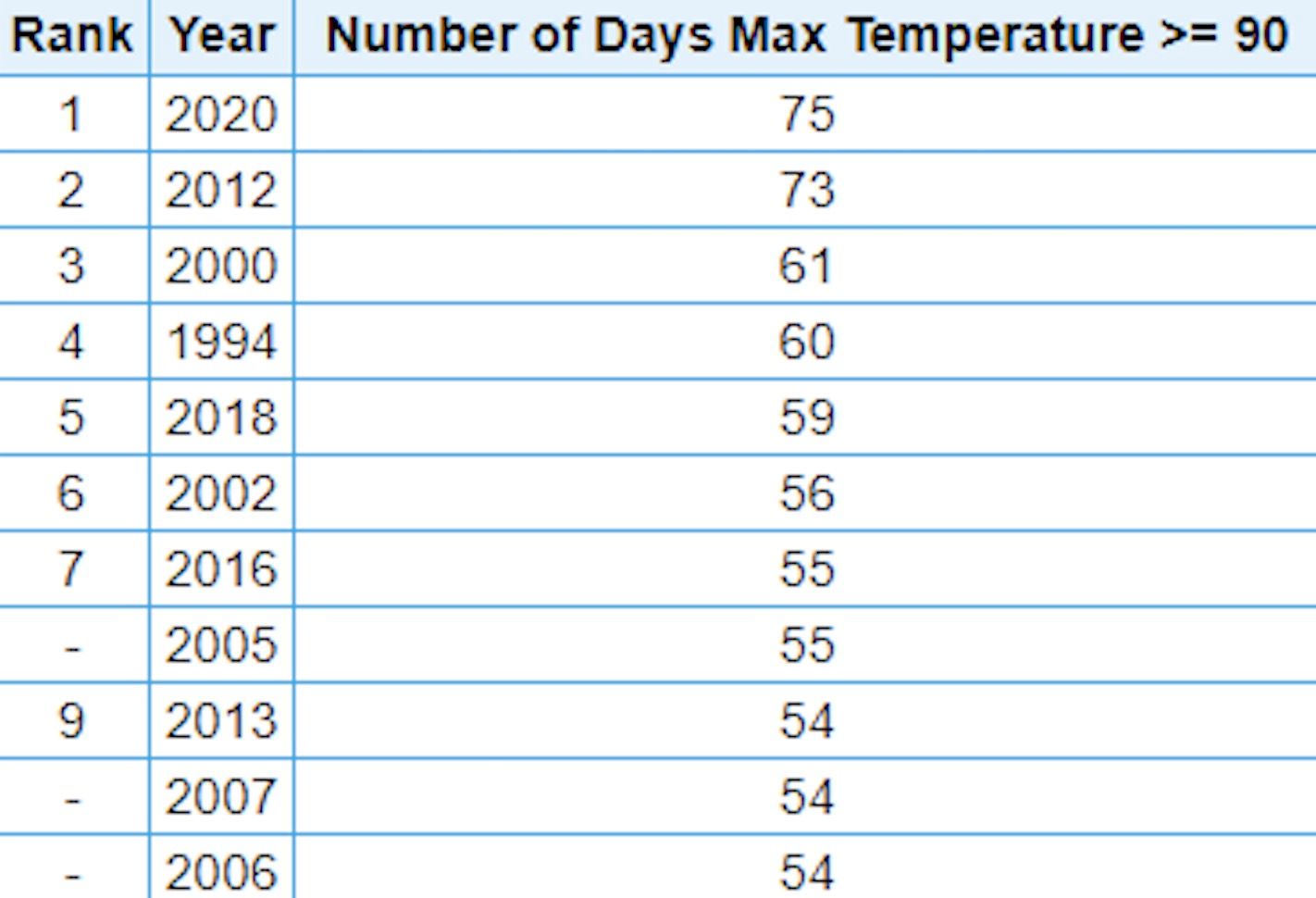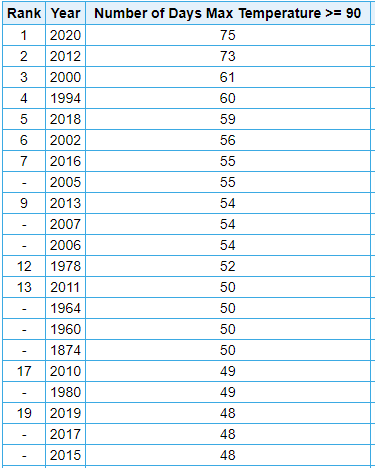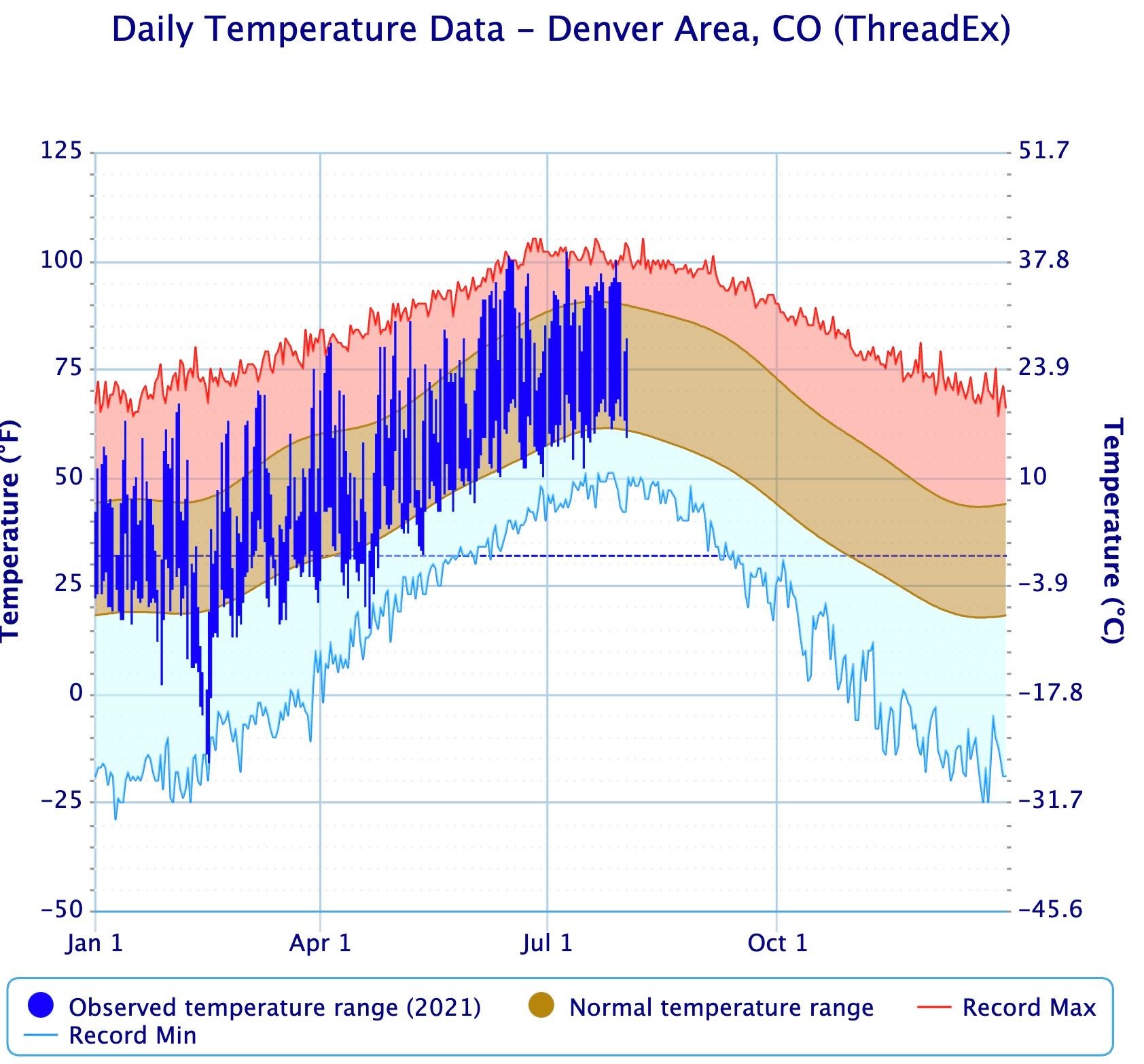
Through July, number of 90 degree days in Denver this year trails pace of record-setting 2020

2021 has had a fair number of 90 degree and warmer days with 34 thus far which is 11th most year to date. However, 2020 had 42 days of 90s+ by this time last year.
Recently, in covering this year's 100-degree heat, we were asked about trends for 90-degree days over the years in Denver. The chart below shows count of 90-degree days between Jan 1 and Jul 31st for all years of record in Denver (yes, the official weather station has moved several times over the years).

While 2020 isn't the most on that chart above, last year did end up with the most 90s in any year on Denver's record with 75(!). A notable 15 of the top 20 90-degree day years have come in the last 20 years.

The 30-year average number of days of 90s+ for Denver is 45, just 11 ahead of where we sit currently. Although we see average temperatures dropping throughout this month, as we talked about in this weeks SOTA, there are plenty of 90-degree days ahead.

The outlook for Denver includes another stretch of 90s ahead, even some upper 90s possible late this week and over the weekend:

This isn't only for Denver, but most metro locations will hit the 90s many more times this season. With that in mind, let's see the count of 90-degree days annually for a few locations.
Denver, a 30-year-moving-average of 45. Denver averages 17 more from August 1st to the end of the year.

A closer look at DIA versus Central Park (Stapleton).
Denver, a 27-year-moving-average of 46.

Denver-Central Park currently 34 days through July 31st. An annual 30-year-moving-average of 42.

Boulder currently at 26 days through July 31st, with an annual 30-year-moving-average of 33. Boulder averages 12 more through the end of the year.


Colorado Springs 16 days through July 31st. An annual 30-year-moving-average of 23. Colorado Springs averages 6 more.


Fort Collins (CSU) 28 days through July 31st. An annual 30-year-moving-average of 30. Fort Collins averages 10 more.


Greeley (UNC) 45 days through July 31st. An annual 30-year-moving-average of 57. Greeley averages 23 more.


If we consider how many additional days of 90s are possible, most locations will end up with more than average on the season but may not quite break any records without a significant late-season hot stretch.
If we consider last years' heat of August and early September, we could see many top ten finishes this year. However, that remains to be seen...clearly.
